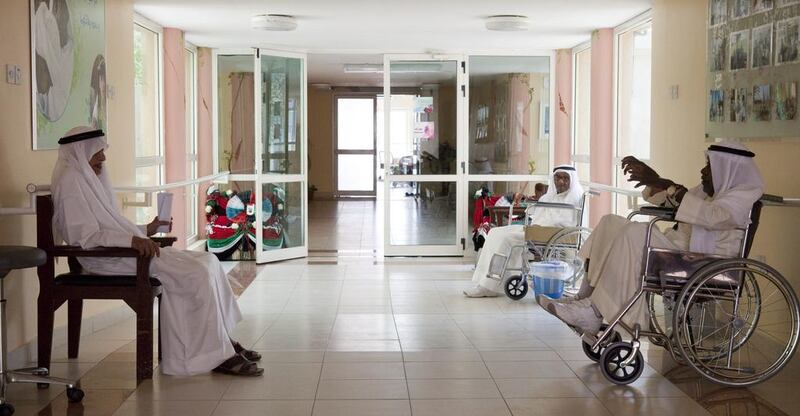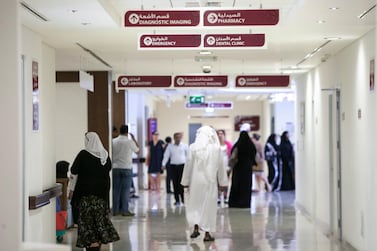Thousands more Abu Dhabi patients are set to have their medical records uploaded to a shared database as part of plans to improve care.
This week, NMC Health and Mediclinic Middle East agreed to join Malaffi, a new online platform designed to increase efficiency in the sector.
The government-backed programme provides health facilities, doctors and government authorities better access to patients’ medical information.
Officials hope the initiative will ensure medics are guaranteed accurate records, regardless of whether patients have been looked after elsewhere.
“We are delighted that more health facilities are joining Malaffi, particularly some of the largest healthcare providers operating in the emirate,” said Mohammed Hamad Al Hameli, of the Department of Health.
“We look forward to reaping the benefits of the Malaffi system in the near future by employing health data to develop policies and robust healthcare programmes, as well as enabling healthcare professionals to make informed decisions based on detailed patient records.”
Malaffi, which means “my file” in Arabic, was launched late last year after consultation with a number of leading healthcare providers.
It aims to offer doctors access to hundreds of thousands of patient files, improving efficiency in areas such as prescription and diagnosis.
Patients will be told that the sharing of their data is mandatory and that the online platform is effectively “part of their treatment”, according to a Department of Health policy document.
It will connect more than 2,000 public and private healthcare providers in Abu Dhabi, which provide services to more than 3 million people.
“Following its implementation, the people of Abu Dhabi will benefit from a safer and more efficient healthcare system through the resulting reduction in medication errors and duplicate tests, as well as the introduction of emirate-wide health initiatives made possible by the centralisation of such levels of information,” said David Hadley, chief executive of Mediclinic Middle East.
Other healthcare groups who have already joined Malaffi include Seha, Cleveland Clinic, Imperial College London Diabetes Centre and Healthpoint.
Together, Malaffi participants own and operate 28 hospitals, 342 clinics and 76 per cent of hospital beds.
Abu Dhabi Health Data Services, the operator of Malaffi, was established in a public-private partnership between the Department of Health and Injazat Data Systems, a subsidiary of Mubadala Investment Company.
Under the programme, patient data will be shared, accessed and stored “safely and securely”, an announcement made on behalf of the Department of Health said. Abu Dhabi Health Data Services said that only the “highest level of authorised user” – who is clinically treating the patient – will be able to access sensitive health information such as details of HIV/Aids status, sexually transmitted diseases, substance abuse or mental-health conditions.






